Podcast: Download (Duration: 1:06:34 — 54.1MB)
Subscribe: Spotify | TuneIn | RSS | More
Some people say that publishing has already been disrupted, that this current state is the new model. But I don’t think the disruption has even started yet. As Jeff Bezos says, “it’s always Day One.”
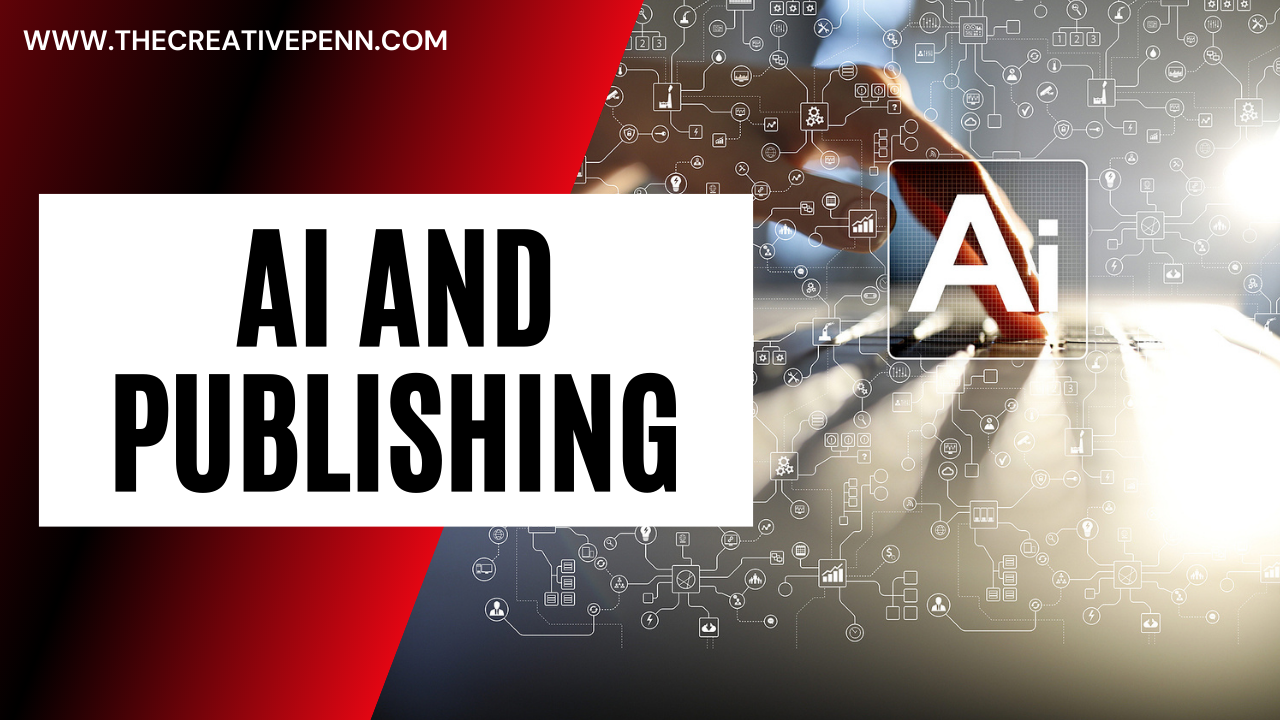
In this episode, I'll talk about some of the possible disruptions to come for authors and the publishing industry due to the rise of Artificial Intelligence (AI) in the next 10 years.
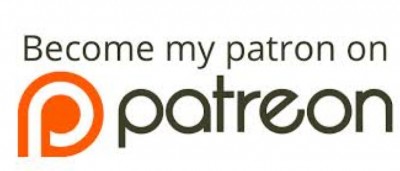
Why write about AI now?
Ten years ago, when I started self-publishing, I was over-the-top excited about the potential of ebooks (see my embarrassing video here!). I could see the incredible possibilities as a creator to reach the whole world with my words.
Since starting out in 2008, I have built a multi-six-figure business as an author-entrepreneur, taking action on that feeling of optimism and learning everything I needed to know to write, publish, market, and make a living with my writing. [See my timeline here].
I started blogging and making money online in 2008 and self-published on the Kindle as soon as it became available. I started my podcast in 2009 before it was even called podcasting and jumped on Twitter around that same time.
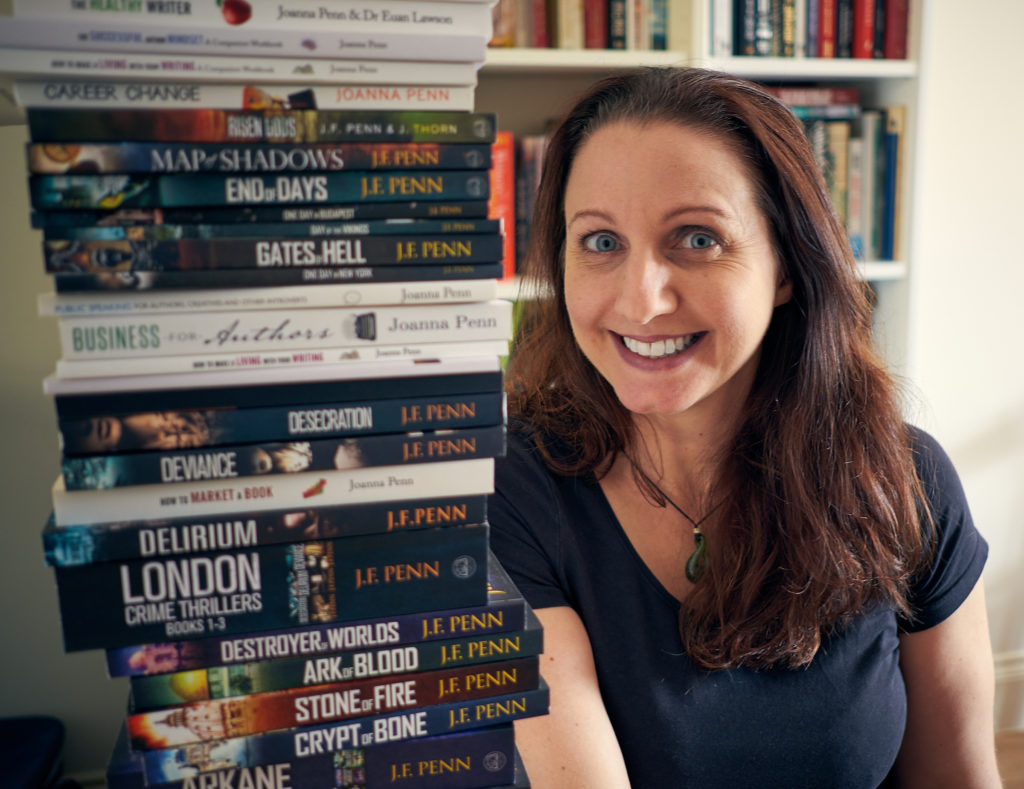
I’ve adopted new tools over time — like Scrivener for writing and Vellum for publishing — as well as working with new partners like Ingram Spark for print and FindawayVoices for audio plus the incumbents like Amazon, Apple, and Kobo — but I haven’t really seen a significant change in my business model over the last ten years.
Then, in 2016, I talked on my podcast about Alpha Go Zero beating Lee Sodol at the game of Go and I had an aha moment similar to the one I had when I read my first ebook on the Kindle. Since then, I’ve been devouring books, audiobooks, and podcasts about AI and also attending events about AI developments, sharing thoughts in my futurist segments every Monday.
In the last six months, I’ve felt a significant acceleration — a shift from AI being a thing of the future to it becoming very much of the now. It feels like 2009 all over again in terms of the level of excitement I feel and the new tools that are emerging are both exhilarating but also terrifying for those who don’t embrace the change.
Before you start to envision anything too dark about our future, I am even more excited about the future for authors and publishing in a new world powered by AI tools, and I am determined to be part of the next shift.
Humans are innately creative and in this new AI-powered world, we can create even more than we ever dreamed possible.
In this article, I outline the ways in which AI might impact the business model of authors and the publishing industry over the next ten years and how we can surf the change rather than drowning in the deluge to come. I've built a new business plan based on these possibilities because I want to embrace AI rather than resist it.
Here’s the overview and then I’ll go into each one in details as well as how to react to these changes. These are in no particular order.
- Non-fiction books, blog posts, and news articles will be written by AI
- Copyright law will be challenged as books are used to train AIs which then produce work in the voice of established authors
- Voice synth technology will replace human narrators for mass market audiobook narration
- Voice search will disrupt text-based SEO and if you don’t have voice content, you will be invisible.
- Translation will be performed by AI — for books as well as other content
- Content will explode exponentially, and AI discoverability and marketing tools will help navigate the tsunami
- AI-augmented creativity will develop and more people will want to be writers
- Print publishing will shift into a green, sustainable model with AI-assisted micro-print-on-demand
- Expansion of mobile reading + micropayments enabled by 5G mobile and blockchain technology + four billion new people online = explosion of reading
Please do let me know your thoughts on these topics — but please do check the sources I mention before you rant as I am not making this stuff up 🙂
(1) Non-fiction books, blog posts, and news articles will be written by AI
This is already happening.
Text generation AI is already used for journalism including tools and companies like Automated Insights, Narrative Science, Bertie, and Heliograf [Forbes]

The first AI generated textbook was published in April 2019. “Writing in the introduction, Springer Nature’s Henning Schoenenberger (a human) says books like this have the potential to start “a new era in scientific publishing” by automating drudgery.” [The Verge]
This is surely just the beginning. The ‘write and publish faster’ model will soon be broken. You cannot write as fast as AI. It doesn’t get tired or burn out and it can consume millions of academic papers or books much faster than you can read.
Publishers are not charities and authors are basically content creators, writing products to be sold. An in-house proprietary creative AI will work constantly with no hand-holding and no need to be looked after in any way.
Of course, human editorial will be more important for choosing topics and shaping the direction of production, as well as editing the finished product, but expect far more content creation by AIs over time.
If you are a freelance writer doing work that does not have a personal stamp on it, check my thoughts below on doubling down on being human.
(2) Copyright law will be challenged as books are used to train AIs which then produce work in the voice of established authors
AI has exploded in the last few years because of two main developments: deep learning and big data.
In that 2016 Go match, Deep Mind’s AI Alpha Go Zero beat Lee Sodol, the Go champion, with creative moves that went beyond the comprehension of Go masters [Wired].
Alpha Go Zero was not programmed with rules by humans. It learned by itself through playing the game, and then by playing its own previous iterations until it surpassed all human players.
That is the true shift behind the acceleration of AI since 2016. AI is no longer constrained by human programmers telling it what to do. Just give a deep learning algorithm enough data and let it train itself.
As Google Head of Decision Intelligence, Cassie Kozyrkov, said at the WIRED conference in London recently, “Optimize this objective on that dataset … Go!”
Of course, the problem then becomes the dataset you train it on, as we have already seen with the social media bots that end up spouting hate speech because they learn it from humans. Curation of the learning dataset is key, as well as the objective you set the AI.
For example, what if my objective is to write a bestselling horror novel — and what if I give the AI the entire Stephen King backlist to learn from?
Or the top 1000 bestselling horror novels from Amazon?
I could probably do a rudimentary version of that right now with AWS Amazon Comprehend (which discovers insight and relationships in text) and then utilize a Natural Language Generation [Wikipedia] tool like GPT2, considered so dangerous that it has not been released (OpenAI), but of course, many other such tools will be created.
The first movie has been created from a screenplay written by an AI [Ars Technica]. While the result might not be high art, it’s a first draft, and it took only a few minutes to create (after much deep learning from existing scripts).
The first novel has been written by an AI [Singularity Hub], OpenAI's MuseNet generates music at the click of a button [The Verge], Google's AI is writing poetry [Futurism]; AI music is changing the way hits are made [The Verge]; The first piece of AI-generated art has been sold at Christie's for $432,500 [Christies.com]

How long does it take a human to create a first draft? And how much more do you have to look after that human? Will big film and TV care if they use an AI for the next iteration of a superhero franchise?
This type of AI creative scenario is already being questioned for the music industry.
“Say an AI system is trained exclusively on Beyoncé’s music … If that system then makes music that sounds like Beyoncé, is Beyoncé owed anything? Several legal experts believe the answer is no.” [The Verge]
There is no doubt in my mind that something like this will be achieved and probably quite soon. Given how scammers love to scam [David Gaughran], and the plagiarism scandals seen in the author community [The Guardian], as well as those who continue to flood Kindle Unlimited with mass-produced books, someone will do this for books, so we have to consider the ramifications.
If I train an AI on the works of Stephen King and it writes a new book with no single sentence that is plagiarized, but is clearly in the ‘voice’ of King, who owns the copyright on that book?
King didn’t write it. The AI did.
Currently, the view is that non-humans can’t have copyright [Robotics Law Journal], but Stephen King didn't write the book, so do I own it? Or does the company that created the AI tool?
I currently use tools like Scrivener and Vellum to write and publish my books, but no one is arguing that those ‘tools' own the copyright to my books. So if I as an author use the Stephen King generator model to write a new book, can I own that copyright? Can I publish that book under my own name?
Personally, I think this is a form of plagiarism. It uses Stephen King’s hard work to train an AI for my own purposes. Since I love his work, I want King himself to be rewarded for it and continue to create, but many do not share the ethical boundaries that I do, and of course, ethics are not legality anyway.
[For more on ethics, check out the Ethical Author code by the Alliance of Independent Authors.]
As an author, I’m excited by these possibilities. I would love to build a natural language generation model based on my books. I’d use that to help me generate first drafts based on adding new ideas to the mix. Perhaps I would even license that model to others to write books and take a percentage of the income.
[Note: Deep learning needs a lot of data, so books by one author would not be enough to train a model, at least right now. It's more likely that a genre-specific publisher with rights to a whole catalog could train a model based on their backlist.]
This might even spawn a new sub-genre of mash-up books, for example, in my model, I might use 30% Stephen King, 30% Dan Brown, and 40% J.F.Penn to create books with a new ‘voice.’
If I was Stephen King (or his publisher), I would be looking at licensing my backlist to an AI text generator model right now in order to own this space before anyone else.
(3) Voice synth technology will replace human narrators for mass market audio narration
You can already use Amazon Polly to read your audiobook and release it as a podcast. You can’t publish it on the audiobook retail platforms — yet — but it is only a matter of time until AI voices are indistinguishable from human narrators.
DeepZen.io promises to be one step closer with “sector-specific solutions that will eliminate the need to use studios and lengthy recording sessions by creating a human-like quality of speech with emotion that can be edited by using intuitive tools. “The company claims that it could reduce the time and cost to produce audiobooks by up to 90%.” [Digital Trends]
I listen to some non-fiction narrators right now and wonder if they are actually bots anyway! I also listen on 1.5x or 2x speed so the ‘quality’ is less important than the content. Given that the Audible app already has 3.5x speed available, it’s clear that many hardcore listeners are also more concerned with content than narration experience.
Of course, there will still be room for gorgeous audio productions by human narrators and performers — but these will be a lot more expensive to produce and to buy. It will be a treat, like going to the theatre, something you buy occasionally and as an experience, rather than for your daily audio consumption.
If the main platforms continue to reject AI narrated books, then a new subscription platform will emerge that only has AI narrated content and it will be a whole lot cheaper than the human-read versions. There may well be a new license for AI narration, a further extension of the audio copyright possibilities.
This will stratify the audiobook market into ‘mass consumption’ AI narrated audio content and books, and a layer of ‘artisanal’ audio, that is created and produced by humans. This is already starting to happen with the full cast productions that Audible is investing in now and I have bought a couple of those for the pleasure of the ‘experience,’ but it is the minority of my listening.
As text-to-speech narration becomes indistinguishable from human narration, famous actors and narrators will license their voices to AI models so they can be paid for recognition but not have to do the work of narration. This will make it cheaper to have pro voices and accelerate audio even more.
Those actors may even sell their voices as some kind of trademark so they can narrate from beyond the grave, in the same way that Enid Blyton among others is still putting out books.
I’ve had a podcast for ten years and in my small niche on the internet, I have a ‘voice brand.’ I’m now narrating my own audiobooks because of this development. I intend to develop my own AI voice model that you could license if you want me to narrate your book. Check out Lyrebird.ai to see the beginnings of this technology emerging already.
(4) Voice search will disrupt text-based SEO and if you don’t have voice content, you will be invisible
Audiobooks are the fastest growing segment in publishing [The Bookseller] and this growth will only continue as people try to reduce their screen time, interact with voice assistants, and increase their reading time through audio.
Once text-to-speech narration is indistinguishable from humans, or human voices are used with synth AIs, voice content will explode.
In recognition of the importance of voice, Google announced at their 2019 I/O conference that they will include podcasts in search results [MarketingProfs].
If you didn’t have a website in 1995, you could still have a business. But by 2005, most businesses had at least a static website. Now, even many individuals have a web presence, whether that is their own website or a social media page. The same acceleration will happen for voice, so if you don’t have audio content or your business is not voice-accessible by 2025, you will be invisible to the voice-first devices.
Four billion more people are coming online in the next 5-10 years [Singularity Hub]. Those will be mobile-first consumers of the internet on 4G-5G speeds. Many of those devices will be Android enabled by Google Assistant. If you ask Google, or Siri, or Alexa to find you a book, they default to audio content. If you search with voice, the reply is by voice.
If your audiobooks are only on the Amazon eco-system, they cannot be found by Google Assistant or Siri, who search in Google Play audio and Apple Books respectively. [Another reason to go wide with audio!]
Voice search has the potential to disrupt the existing search engine model that monetizes based on paid ads. The front page of Google is no longer enough when there is only one answer to a question.
In a voice-first world, we need to figure out ways to be discovered, for example, building Alexa Skills or other voice-enabled marketing. Otherwise, the publishing industry will continue to miss out of revenue – estimated to exceed $50 million in 2020 without changes [What's New in Publishing].
More on voice first technologies in my interview with Bradley Metrock, and also on optimizing for voice search with Miral Sattar].
(5) Translation will be performed by AI — for books as well as other content
At Beijing Book Fair in August 2018, the Youdao AI Translator translated a 100,000-word non-fiction book from English to Mandarin in 30 seconds. It then took a human narrator a week to clean up the translation and it was ready for publishing. The comparison was six months for human translation alone. [The New Publishing Standard]
Deep learning has accelerated AI translation tools like Amazon Translate, Microsoft and Google, as well as companies like Lilt who use AI-powered translation and then humans to edit and polish.
“within one to three years, neural machine technology (NMT) translators will carry out more than 50% of the work handled by the $40 billion market” [Forbes: Will Machine Learning AI Make Human Translators An Endangered Species?]
Indie authors have so far focused on licensing content to foreign markets, but if you can use AI translation, how will this change the way we publish — especially if we can use AI-powered marketing where we don’t need to know the language in order to reach readers?
That’s exciting but also consider it from another angle. What if Chinese authors publishing on their mobile platforms decided to translate their books into English and release them on the US and UK stores? When China Literature spoke at London Book Fair in 2018, I was stunned that so few people went to hear their representatives speak, because I see that possibility as a far greater threat.
How much more content will we have when translation is just as easy as publishing in your native language?
[If you are one of those who doubt AI translation will ever work for fiction, then just consider how much it will impact the publishing industry if only non-fiction was AI-translated.]
(6) Content will explode exponentially, and AI discoverability and marketing tools will navigate the tsunami
If content is produced by AI at a faster rate in every medium — and possibly with the addition of translated material — then the tsunami of content will soon bury us all.
Authors and publishers already have to pay for Amazon Advertising to even be seen in the Amazon stores right now and this model will soon be broken as ads become too expensive for most.
But this overwhelming amount of content will also drive the need for better discoverability tools.
I have been saying for years that the book itself should be metadata. Why do I need to select categories and keywords and run ads on other keywords or similar authors? Why can’t the algorithms determine the emotional promise of my books and match the content with the right readers who will enjoy it?
Distributor PublishDrive has started using their AI tool, Savant, for category determination, and is also moving to use more AI tools for authors in their portal.
The mass market is dead. Bestsellers are dead. Micro-niche will be everything and more granular discoverability will be better with AI, e.g. emotional resonance matching or specifics like I want a thriller set in Rome with a female protagonist who likes fast cars and Renaissance art.
We’re starting to see this with Amazon Advertising auto-targeted ads. They were pretty bad a year ago but now they are starting to become more effective.
I would anticipate better AI matching between readers and books, as well as publishers and books they want to take further, or content producers for film and TV and content they can license, like a super-sized version of PubMatch and Taleflick.
(7) AI-augmented creativity will develop and more people will want to be writers
One of the best segments of the Wired conference I attended recently was the performance of Reeps1, a beatboxer who created a visual sculpture with his voice live on stage. It was beautiful and far more engaging than listening to his voice alone. He talked about augmented relationships, where AI will take our creativity into new realms of possibility.
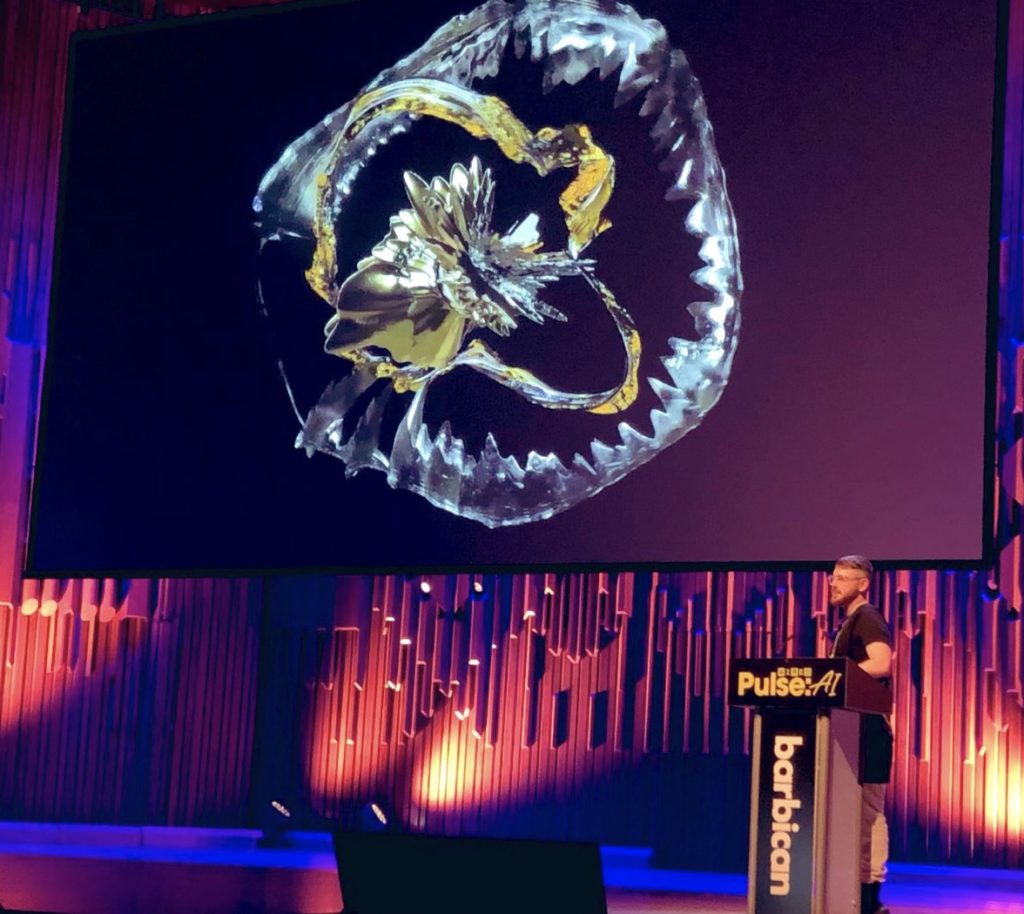
I see the rise of ‘centaur-publishing’ where there will be new forms of writing in collaboration with AI tools — perhaps even the virtual Stephen King AI that I mentioned above. There will be new prizes and competitions in the same way that there is now centaur-chess [TechCrunch].
Hopefully, we will embrace the new possibilities of AI-assisted creation in the same way as the Go industry has done.
“AlphaGo’s game last year transformed the industry of Go and its players. The way AlphaGo showed its level was far above our expectations and brought many new elements to the game.” – Shi Yue, 9 Dan Professional, World Champion on the Deep Mind blog.
There will always be purists, those who insist on human only creation, but I can bet you those people are still happy to use the internet when it suits them. Tools are tools, whichever way you look at them.
I hope we will embrace creative commons and remixing as mash-ups between human and AI become more accepted and celebrated for a new form of creativity.
I’m excited about the possibilities, for example, instead of writing stories for the ‘book’ container, what about writing your ideas for an interactive voice assistant like the Choose Your Own Adventure stories [The Verge], or writing an audiobook or audio drama first, or writing for an immersive augmented reality experience. The possibilities of transmedia become even more exciting with AI assistance, especially as an independent creator.
Looking at the broader impact of AI, many talk of the loss of jobs, the need for retraining, universal income of some kind so that people can afford to live, and so many basic tasks being done by AI that people will have more time to do the things they want to do — like write.
The human drive to create is innate within us all, and some of us want to express ourselves in writing. People will have more time, so people will consume more, but they will also create more.
Teaching writing has always been a part of the author business model [Alliance of Independent Authors] — so this will only become more applicable in a future with more creators. Expect to see a boom in books on writing, creative courses and particularly, in-person, human-led experiences like retreats, live events, and conferences.
(8) Print publishing will move to a greener, sustainable model with AI-assisted micro-print-on-demand
I absolutely believe in the future of print as a format that readers still want to buy — but not in the way that publishers currently produce print books.
Current publishing models are incredibly wasteful with huge print runs, returns, pulping and some books ending up in the landfill. Plus, many are printed a long way from the final store with the associated shipping and handling issues.
With the price of paper changing [Publishers Weekly] and the shift to green economics and ‘buy local’ in a world of climate change, I can’t see how this current publishing model will be allowed to continue. It’s possible that it is only accepted now because so few realize how wasteful and destructive it is.
Print-on-demand is the most sustainable option for print publishing. When a customer orders a book, one copy is printed and sent to them. No waste, no pulping, no returns. Just a happy customer with a print book.
Of course, right now, print on demand happens at specific hubs and is more expensive than bulk print runs but that could change if the model shifted.
AI-driven print-on-demand in micro-locations, maybe even in bookstores like the Espresso Book Machine, will enable bookstores to localize as well as react to fast-moving changes in news and social media. Something happens and people want a certain book. Bookstores print a copy in the back and put it out in the store and if customers want it, more are printed on site. This ties into the more localized model of bookstores that Mike Shatzkin talked about recently:
“… we need smaller stores with much more rapidly rotating title selection, probably driven algorithmically by sales signals and social media signals more rapidly than human buyers could arrive at answers poring over spreadsheets.” [Mike Shatzkin – Idealog]
I wrote several years ago about how VR and AR could change bookstores and still believe it could enhance the shopping experience by individualizing recommendations and enabling physical stores to have a better online presence, and also to offer more books in-store with AR displays. [FutureBook]
(9) Expansion of mobile reading + micropayments enabled by 5G mobile and blockchain technology = explosion in reading
This model is already happening in China with many people buying and reading within the WeChat eco-system paying with micro-payments [FutureBook].
Facebook is introducing its own cryptocurrency, Libra, and this may enable similar types of behavior on the mobile, social platforms used in the West. [TechCrunch]
I already sell my ebooks direct through PayHip as well as lots of other online stores, so I’d be happy to sell my books on Facebook directly, too.
By 2025, there will be another 4 billion people online and most of those will be accessing the internet through mobile devices. This is why Streetlib now has a publishing portal in every country, in every language, positioning themselves as the portal for the 2020s (and why I am now distributing on their platform as well as others).
The massive growth of digital book sales (ebook and audio) is not in the US, UK, Canada, or Australia. It’s everywhere else — and most of those countries don’t use Amazon to shop for books.
Micropayments for pages read through mobile platforms will suit the next generation of readers, and if creatives can use blockchain technology to tag intellectual property through the supply chain, then revenue through these new models could be truly exciting. If you own global rights to your IP of course, which makes the independent author model even more viable. [Alliance of Independent Authors – Blockchain for Books].
I hope this gives you a sense of the excitement I feel right now!
If even some of this is possible in the next ten years, what should we do in order to surf the change and take advantage of the creative possibilities?
(A) Embrace the tools, don’t fight them.
We are not looking at an artificial general AI in the near future. There will not be an AI just like me or you sitting at a laptop in a cafe creating stories and books and hoping to change the world.
But you can expect specific tools emerging from the new world of deep learning + big data, a bit like your phone is filled with apps that you use every day, even though back in 1995 you didn’t know you needed a mobile, and in 2005, you didn’t know you needed a smartphone with internet access.
Authors have always used tools. Even pen and paper augment your creative brain. Writers embraced the typewriter and then the word processor. We use dictation to write faster (and recently, I have switched to an AI transcription service, trint.com to transcribe my dictated files as it is faster and cheaper than human services).

In the last ten years, we have started using writing tools like Scrivener, formatting tools like Vellum, and publishing platforms like Amazon KDP or Kobo Writing Life, as well as print-on-demand platforms like IngramSpark and audio services like ACX and FindawayVoices. [More tips in free ebook, Successful Self-Publishing.] We use the internet to publish and market globally, and social media apps to connect with other authors and the reader community.
Authors and publishers who have embraced the ‘new’ tools of the last ten years have done very well indeed — and I, for one, intend to surf the wave of what’s coming next.
So how will you use the new generation of tools as they emerge?
(B) Double down on being human
Publishers are businesses. They will use whatever tools they can to bring down the costs of doing business and authors are just content creators at the end of the day. Yes, your editor may love you, but it’s the accountants who make the decisions.
You cannot win on speed when an AI can write a screenplay in two minutes, or generate a textbook, or translate a book faster than you can read this sentence.
But there is one thing that you can do that AI cannot — be you.
Move away from the ‘faster is better’ model to ‘artisan craftsmanship.’ Stand out by having a unique voice. Don’t write anything without giving it your own authentic stamp. Focus on local, imperfect, real connection with other humans.
Everything you do needs to be personal. Use your experience and your voice to connect in the written word, but also by moving into voice and even video if that’s your preferred medium.
This is why I am doubling down on voice technology — narrating my own audiobooks, creating Alexa Skills, writing a travel memoir in real time on my new show, Books and Travel, and helping people know, like, and trust me so they are interested in what I create over time.
I’m thinking about how I can do more artisanal creation, for example, limited edition hand-printed books on hand-made paper, as well as creating experiences, for example, join me for a creative weekend in Bath where I will show you the literary places that inspire me and help you write your own book.
In conclusion, I believe that the next ten years will bring an even bigger shift than we have seen so far as authors and publishers face the promise and the challenge of AI-enabled technology. I’m excited to surf the change and I hope you will join me on the journey!
Recommended Resources:
These are some of the blogs, books, and podcasts I recommend if you want to learn more about what’s going on with AI. I listened to most of the books in audio format and then bought the hardback editions as well.
- WIRED magazine and The Verge blog for regular updates on the applications of AI. Tech-focused but not in tech-speak 🙂
- Sleepwalkers Podcast – AI is here already, it’s just not evenly distributed. This podcast is much broader than the publishing industry but it’s a must-listen show to get a sense of what is going on right now.
- AI Superpowers: China, Silicon Valley, and the New World Order – Kai Fu Lee. China aims to overtake the US with AI technologies by 2025 and be the global leader by 2030. They have changed their school system to achieve that, and are changing society to take advantage of big data. A fascinating book that will make you question your assumptions. Blew my mind …
- Talk to Me: How Voice Computing will Transform the Way We Live, Work, and Think – James Vlahos. An overview of the history of voice technology as well as how voice tech is being adopted in different demographics, from talking Barbie to helping dementia patients, and the emotional resonance of voice. This book made me decide to double down on voice in my own business.
- The Creativity Code: How AI is Learning to Write, Paint and Think – Marcus du Sautoy. Can AI really be creative? And what does it mean for us if it can? You can listen to my interview with Marcus on The Creativity Code here.
- The Big Nine: How the Tech Titans and their Thinking Machines Could Warp Humanity – Amy Webb. I am on the positive happy side of AI, so it was good to read this book and learn more about what could go wrong if we don’t engage with the changes ahead. This is exactly why people of all kinds need to learn about AI and get involved — including those of us who are not techy, as well as people from diverse backgrounds. #weneeddiverseAI
- Life 3.0: Being Human in the Age of Artificial Intelligence – Max Tegmark. An overview of the development of AI and how it impacts society now and into the future.
- Exponential Wisdom Podcast with Peter Diamandis and Dan Sullivan. The next billion-dollar markets are about to take off. A positive podcast on the opportunities of exponential technologies.
- The New Silk Roads – Peter Frankopan. Plus The Future is Asian by Parag Khanna. Both of these books are more about the growing dominance of Asia, where a lot of AI development is happening. So much of our news is siloed and focused on domestic issues that we have missed the incredible developments going on elsewhere.
- Homo Deus: A Brief History of Tomorrow – Yuval Noah Harari. How the world will stratify into those who can use and work with new technologies and those who can’t. We need to be in the group who can use it. Do not be one of the ‘useless class.’
- The Inevitable: Understanding the Twelve Technological Forces That Will Shape Our Future – Kevin Kelly. A framework for looking at the world and the changes to come with the positive slant that Kelly always brings to his work — and why I have listened to this several times!
- AI For Everyone – Andrew Ng. Free multimedia course on Coursera. Very useful for understanding the language around AI and also its applications right now and in the future. He includes translation and text-to-speech as some of the things that AI does well.
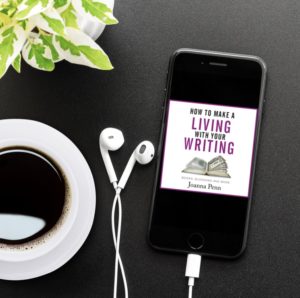
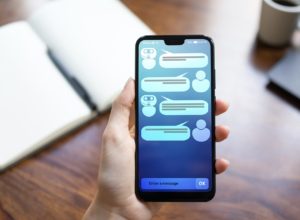
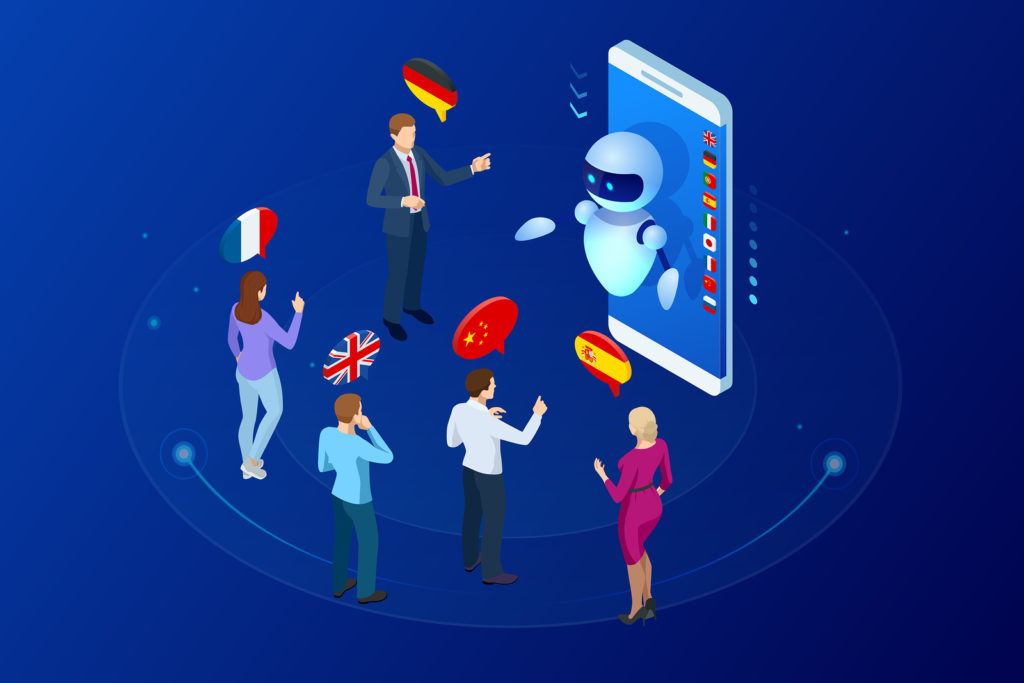




I finished reading AI Superpowers feeling really energized, not because none of this scares me, but because it opened to my eyes to need for storytellers. The coming changes are going to force shifts in our thinking about the world and about ourselves. Humans understand the world via the stories we tell. Perhaps there are so many storytellers now, because the world needs us now more than ever!
I love that book! I learned so much from it about China and a different world view, and Kai Fu is very positive about the future for humans, as long as we focus on the human element and don’t cling to what can be technologically replaced. Glad you’re inspired!
I’m a bit behind, but I’ve inadvertently been teaching authors how to navigate FB’s AI since last May, and finally realized that’s what it was after catching Frontline’s Rise of AI documentary. My concern is that the AI is often not perfect and there’s no way for humans to raise concerns about mistakes. False negatives and positives with no ability to accept or synthesize user feedback are a big issue and also a vulnerability for scamming.
Hi Joanna, I am not sure what to say to be honest. I will embrace it and go for the ride. Delece
Great attitude, Delece! Join the ride 🙂
Great article, Joanna. As you may recall, I spent many years in AI R&D. What you may not know is my daughter is a neuroscientist who uses these so-called learning algorithms all the time in her work. She is also a (visual) artist and we often discuss the intersection of neural networks and creativity. Everything you say here rings true and I believe it is an accurate summary of current emerging trends that will become disruptive over the next five to ten years.
It’s kind of sad, in a way, that sooner rather than later, the vast majority of books will be written by AIs. Although you are right to say that people will be able to involve themselves in the creative process and that the uniqueness of each person’s experience will be a valuable input to creating great stories, I do not see myself ever working with AI tools to write novels. For me, the creation of detailed worlds and of fascinating characters to have adventures in them, is such a great pleasure that I will continue to write books the old fashioned way – even after the AIs become so good they can do the job better than I can!
Thanks, Graham 🙂 I believe that the human pleasure in the creative process is completely separate to the business side of writing and the money-making aspect, whether we use AI tools or ‘just’ tools like the internet or Amazon KDP or paid ads etc.
Creation will always be why we do it, and that won’t go away. What will change is how business is done and how money is made from those creations. I think that ownership of IP will be critical in a world where you can translate easily and market with AI algorithms.
Why would using an AI translator to put your book into German curtail your creative process? Would you consider that?
Oh, I’d certainly use AI translators if they existed (on the assumption that they would be massively cheaper than human ones) but I can imagine human translators, who will appreciate the skill and subtlety involved in a good translation even better than I do as a mere reader, tearing out their hair in anguish at the very idea. (Of course they may welcome the idea of a machine-generated “first draft” translation they can then refine.)
The problem of a good translation is quite similar to that of a good reading, I think. I recently binge-listened to all the JK Rowling detective stories, read by Robert Glenister, an actor I have always admired. He did it so well it got me thinking about what is involved in such first-class performances. For an AI to produce the inflections, the characterisations, all the tone and colour, would take an incredible level of real-world semantic knowledge on top of mere linguistic skills. We are actually a very long way still from that level of machine intelligence. However, when I browse the Guttenberg Project and listen to a few of the audiobooks there, read by amateurs – students mostly – for the benefit of the visually impaired, it is clear to see that there is an “adequate” level of performance that is considered a lot better than nothing and which AIs might aspire to in the near-term 🙂
I have projects in the works with both of those, so will do an update at the end of the year 🙂
Great Episode! I’m not into this stuff enough to read all the books you’re reading, so I really love hearing your summaries and revelations! Thank you!
Thanks Joanna 😀
Another great blog as always and this time one on something that I’ve also spent some time researching. [As a children’s science fiction author, understanding the realm of the future is essential if my readers are going to believe in the worlds I create:)]
I’ll try and keep this short, but if anyone wants a follow up on any particular section, just shout.
7 Extra value ideas to understand the world that’s coming
Firstly, the blog is spot on. Technology is ever accelerating into greener pastures, overturning industries, markets and challenging accepted beliefs. You mentioned some predictions in your piece. Here are some that the Economist made at the end of 2017 [The World of 2018, p.144] based on polls of some of the leading minds in the relevant areas:
1. AI writes top 10 pop song (2018 – 2038)
2. AI writes a NYT bestseller (2030 – 2035)
It’s impossible to stay in one place and those who surf the wave of change will fare better than those who struggle against it. The best thinker, I’ve found, on how to anticipate change is Simon Wardley and I’ll come back to some of what he has to say at the end of this piece.
Secondly, society norms and in particular law, strives to keep up, mainly because it’s routed in established ways of thinking. For instance look at how the law on privacy is struggling with social media. Do we have the right to demand that what is posted about us, or retained in insist that what is held publicly accessible databases is under our control and should be deleted even if true? Think spent convictions and the aborted second part of the Levinson enquiry.
As the blog rightly point out, Copyright law will be no exception. Who owns the copyright to a style, or genre? [Note, I’m not an expert on Copyright law, but do have the educated understanding necessary to be an author, publisher and illustrator.]
If you take the Stephen King example, it’s the app developer who feeds Mr King’s works into the AI who is breaking the law. But what if she doesn’t feed the works in? What if she just sells the software with an easy interface that enables every customer to feed in their own library of favourite books? Who is breaking the law then? It’s the consumer… …and when it gets to the consumer, the cost of enforcing law means that most cases just disappear.
3. The importance of brand. If the consumer goes one step further and tries to publish these great works, they will come up against the challenge of marketing against a significant brand, which I’m sure we’re all familiar with.
This fictitious aspiring entrepreneur can’t just say ‘Written in the style of Stephen King’ and expect an automatic avalanche of sales. They’d have to credibly socialise how they can prove it’s in that style. Admission that they’ve used the software illegally is not going to grow an international market.
The same will apply in audio. Who owns the voice, is it the actor/celebrity, or is it the mimic? Whichever, people will buy the recognised brand. It is the consumer, who will actually be in control, even if they don’t know it. It is the consumer that we need to continue to target.
4. Price and profitability. Historically, the laws of supply and demand have driven most pricing decisions. If there are significant profits to be made then new suppliers will enter the market and drive price downwards. Brand will continue to create a significant barrier to entry as the development of brand value takes time.
Recently, technology had added a new twist on this, which is to anticipate the power of the whole market and to target the mass market from the first, either for free, or for such a low price that it prevents new entrants from being able to mount an effective challenge. Think Facebook, Google, Twitter, who provide free content to users and generate their revenue from other sources.
Using this business model, implies that an app that can write in the style of any author that you choose to feed it, will be targeted directly at consumers, rather than the publishing houses.
Indeed, tech savvy publishing houses that have focused on ensuring their businesses thrive and grow, have looked to technology to help them and have then taken it one step further. Why would they want to restrict their aspirations to publishing when you can use technology to leverage you into multiple markets? If you want to find out more, have a look at the St.Ives corporate evolution. [PROVIDE LINK TO THE ST.IVES STORY]
5. Who is talking to who? So, if you wanted to create an app that would be attractive to a mass market rife with AI, that would naturally lead to AI that deals with other AI on our behalf based on our own personal preferences. An app that watches what we read, which stories we find interesting, which ones bore us and then either automatically interfaces with the AI that authors and publishers use to market their works, or cuts out even that step and interfaces with an AI that will write more material in that style, adjusting it automatically to your mood and changing interests.
6. Vision On. Why stop at audio? After audio, naturally comes vision. Imagine AI that can automatically develop a whole movie or box set series based on what shows the consumer enjoys most, directed in the style of their favourite director and acted by a cast of their favourites.
After vision comes immersive computer games and virtual reality.
7. Predicting the future. Ready to give up now? Well, you shouldn’t. This all takes time even in today’s world of rapid evolution. Within that time there’s room to adapt, which is where Simon Wardley’s advice comes in.
Simon’s made a study of how markets and products interact and evolve so that forecasts of what’s to come is more reliable. The theory is expounded at length in his free online book at , but the essence is that: –
• All products move through four phases:
1st. They start out as brand new ideas, they’re expensive to produce and don’t have much functionality. Each one is almost a labour of love (and innovation). In the world of publishing this was probably Moses’ tablets of stone.
2nd. This step covers the custom build period. Take the time before the printing press, when books were hand written and if you wanted more than one copy you employed someone to literally write another copy. As a result each copy was beyond the reach of the vast majority of the population. Illiteracy was the norm.
3rd. In this period, production capability takes over and the market grows rapidly. This period starts with the Guttenberg press. Suddenly new copies can be produced much more easily, but are still subject to a set up cost so production runs and warehousing become important factors. This is the period during which whole new unexpected developments and consequences occur. From the Guttenberg press comes mass production of the bible, the reformation and the importance of literacy.
4th. Finally there is utility. The product becomes a commodity and its functionality is wrapped up with other services. Think Amazon Print on Demand.
Shifting this example sideways and into the creative author and publishing market and you can see an interesting shift taking place. Publishing itself is increasingly becoming a commodity. Many authors do it themselves.
However, using creativity and imagination to produce a new work to be published remains in the custom build period. Before we can move into the utility phase, we will pass through the production phase. The question is, who will produce the products that enable the production phase, who will exploit them and who will lead the giants in the market?
It’s unlikely to be the publishing houses as they are already deep into the utility war (a period where there is intense competition, mostly over price since the primary product is usually cheap and the features consistent.
Finally, back to the original thought… WHEN will AI be a serious threat to the part time author?
In Chapter 9 of his book, Wardley talks about charting the future and predicts the ‘war’ between large scale production of intelligence agents to be in full swing around 2030 – 2035, interestingly, that’s after full scale production of genetically modified organisms. I have no idea what consumers are going to make of mass produced, custom built genetically modified organisms and the legal challenges that is going to give rise to.
It’s coming.
There’s time to adapt and success will go to those who can see the future before it sees them.
Thanks for adding to the conversation with this 🙂
You’re welcome Joanna. 😀 A couple of editorial corrections:
The St Ives link is
https://www.printweek.com/print-week/news/1164292/end-of-printing-era-for-st-ives-as-clays-is-sold
The link to Simon Wardley’s book is
https://blog.gardeviance.org/2017/04/the-book-so-far.html
At one point you asked, “Are you still listening?” Oh, yes — More please!
In 2007, I was pres of Novelists, Inc., and got Chris Anderson (then editor of Wired, now running Ted Talks) to speak at our conference. He stood in front of a roomful of then-solely-traditionally published popular fiction authors and said, “Publishing as you know it is dead.”
AND he didn’t know what was coming after it.
Not necessarily a cheery thought at the time. But it opened many of our minds to the future. It allowed a lot of us to be aware of/open to possibilities, helping spawn many indie careers. Thanks, Chris!
That’s what you’re doing for your listeners. It feels to my spidey senses like another of those turning points and I love — and am grateful — that you’re sharing such interesting an useful outlooks about it.
What might shape the future the most is whether AI becomes open and widespread (the internet) or proprietary and controlled by deepest pockets (Facebook, Amazon, etc., algos, especially of search/discoverability.)
But there’s no sense being scared. Change is coming no matter how scared some are. Learn about it, look for ways it can work for you, and adjust. Both to avoid being flattened by the onrush and to reap potential benefits.
Thank you again … and more, please!
Thanks, Pat! I appreciate your comment about Chris Anderson. I was listening to him back then, along with others who started the web 2.0 movement. I think the indie movement is similar — and only growing!
I came across this article and thought it might interest you. https://www.wired.com/story/the-genderless-digital-voice-the-world-needs-right-now/?mbid=social_fb_onsiteshare&fbclid=IwAR0fapvktfEneWgaBcw4yVXeeMpAXAUuwk5N0kmcF9gJI0hJg2JDc-XlqR4
I can’t say that I share your enthusiasm over the rapid growth and applications of AI, but I am interested to learn about it. I think there is enormous potential for us to lose what makes us uniquely us, both the sound of our physical voices and the way we think and create.
In the US anyway, laws and regulations, especially for technology, are way behind the innovations. Even when they are in place, enforcement is a completely different matter.
.
I can’t tell you how much I appreciate you keeping your finger on the pulse of Indy publishing and sharing your knowledge, experience and analysis with us. Thank you!
Almost every industry is going to see a fourth round of industrial revolution with the advent of IoT. From microwave to doorbells, everything is becoming advanced due to this intervention. The most important example is of Samsung which is adopting IoT in a big way to deliver quality products. Just wait and watch how this industry changes over the years. http://coe-iot.com